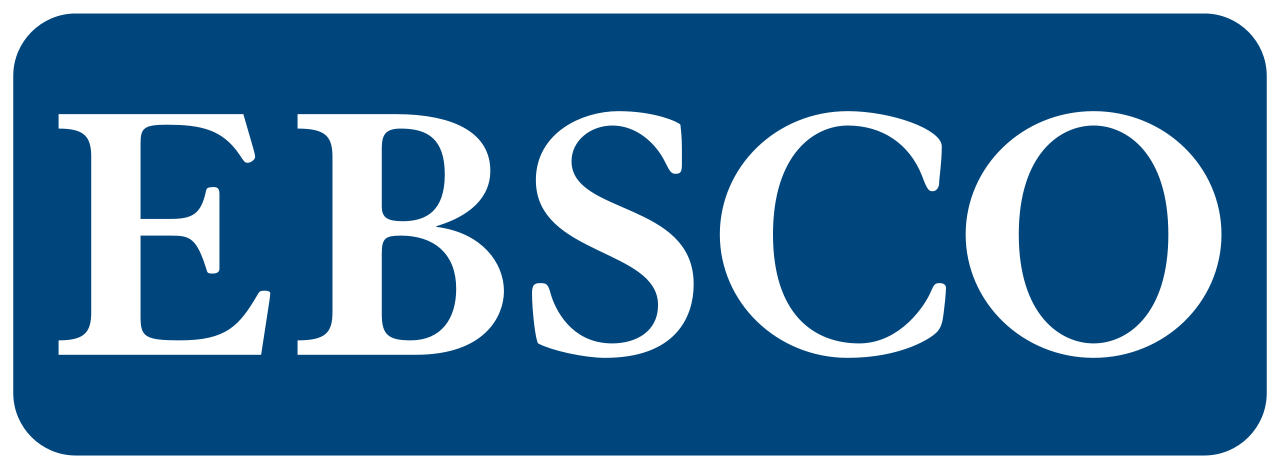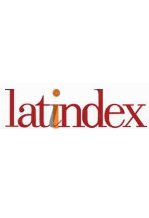Experiência docente e desempenho escolar: testando uma hipótese de um relacionamento não-linear
Abstract
This paper aims to analyzes the relationship between teacher’s experience and educational quality in Brazil. The hypothesis of Professors Experience Curve was formulated to verify whether the teacher’s experience shows a quadratic relationship with the student’s academics achievement exams. A panel of schools was set up using the data from the Prova Brasil for the years 2007, 2009 and 2011 years, in which the average student’s achievement, per school, in Mathematics and Portuguese Language, was regressed against the quadratic polynomial of the average professor experience as was proceeded by Grossman and Krueger (1995) to verify the hypothesis of Environmental Kuznets Curve and Lin and Tang (2008) testing the Educational Kuznets Curve. The results pointed that there is no evidence to validate the hypothesis of Professors Experience Curve.
Downloads
References
Benedicto, B. & Teixeira, E. (2020). O efeito do perfil do diretor escolar sobre a proficiência dos alunos no estado de Minas Gerais. Economia Aplicada, 24(1), 5-28. doi: 10.11606/1980-5330/ea132906
Biondi, R., & Felício, F. (2008). Atributos escolares e o desempenho dos estudantes: uma análise em painel dos dados do SAEB. Brasília, DF: MEC/INEP. De https://econpapers.repec.org/paper/feawpaper/08_5f08.htm
Buchmann, C. (2002). Measuring family background in international studies of education: Conceptual issues and methodological challenges. Methodological advances in cross-national surveys of educational achievement, 150-197.
Buddin, R. & Zamarro, G. (2009). Teacher qualifications and student achievement in urban elementary schools. Journal of Urban Economics, 66(2), 103-115. doi: 10.1016/j.jue.2009.05.001
Clotfelter, C., Ladd, H, & Vigdor, J. (2006). Teacher-student matching and the assessment of teacher effectiveness. Journal of human Resources, 41(4), 778-820. doi: 10.3368/jhr.XLI.4.778
Couri, C. (2010). Nível socioeconômico e cor/raça em pesquisas sobre efeito-escola. Estudos em Avaliação Educacional, 21(47), 449-472. doi: 10.18222/eae214720102458
Croninger, R. G., Rice, J. K., Rathbun, A., & Nishio, M. (2007). Teacher qualifications and early learning: Effects of certification, degree, and experience on first-grade student achievement. Economics of Education review, 26(3), 312-324. doi: 10.1016/j.econedurev.2005.05.008
Cunha, F., & Heckman, J. (2007). The technology of skill formation. American Economic Review, 97(2), 31-47. doi: 10.1257/aer.97.2.31
DeBruyn, S., van den Bergh, J., & Opschoor, J. (1998). Economic growth and emissions: reconsidering the empirical basis of environmental Kuznets curves. Ecological Economics, 25(2), 161-175. doi: 10.1016/S0921-8009(97)00178-X
Felício, F. & Fernandes, R. (2005, Dezembro). O efeito da qualidade da escola sobre o desempenho escolar: uma avaliação do ensino fundamental no estado de São Paulo. In: XXXIII Encontro Nacional de Economia, Natal, RN.
Franco, C., Ortigão, I., Albernaz, Â., Bonamino, A., Aguiar, G., Alves, F., & Sátyro, N. (2007). Qualidade e eqüidade em educação: reconsiderando o significado de" fatores intra-escolares". Ensaio: avaliação e políticas públicas em educação, 15(55), 277-298. doi: 10.1590/S0104-40362007000200007
Glewwe, P., Hanushek, E. A., Humpage, S., & Ravina, R. (2013). 2. School Resources and Educational Outcomes in Developing Countries: A Review of the Literature from 1990 to 2010 (pp. 13-64). University of Chicago Press.
Goldhaber, D. & Brewer, D. (1997). Why don't schools and teachers seem to matter? Assessing the impact of unobservables on educational productivity. Journal of Human Resources, 505-523. doi: 10.2307/146181
Grossman, G. & Krueger, A. (1995). Economic growth and the environment. The quarterly journal of economics, 110(2), 353-377. doi: 10.2307/2118443
Hanushek, E. (1986). The economics of schooling: Production and efficiency in public schools. Journal of economic literature, 24(3), 1141-1177. De: https://www.jstor.org/stable/i347595
Hanushek, E.(1995). Interpreting recent research on schooling in developing countries. The world bank research observer, 10(2), 227-246. Doi: 10.1093/wbro/10.2.227
Hanushek, E. (2003). The Economics of schooling and school quality. London:Edward Elgar Publishing.
Hanushek, E. (2006). School resources. In: E. Hanushek & F. Welch (Orgs.), Handbook of the Economics of Education, 2 (pp. 865-908). North Holand: Elsevier.
Hanushek, E. & Luque, J. (2003). Efficiency and equity in schools around the world. Economics of education Review, 22(5), 481-502. doi: 10.1016/S0272-7757(03)00038-4
Hanushek, E. & Rivkin, S. (2006). Teacher quality. In: E. Hanushek & F. Welch (Orgs.), Handbook of the Economics of Education, 2 (pp.1051-1078). North Holand: Elsevier.
Henderson, V., Mieszkowski, P., & Sauvageau, Y. (1978). Peer group effects and educational production functions. Journal of Public Economics, 10(1), 97-106. Doi:10.1016/0047-2727(78)90007-5
Hanushek, E., Kain, J., O'Brien, D. & Rivkin, S. (2005). The market for teacher quality (No. w11154). National Bureau of Economic Research. doi: 10.3386/w11154
Huang, F.& Moon, T.(2009). Is experience the best teacher? A multilevel analysis of teacher characteristics and student achievement in low performing schools. Educational Assessment, Evaluation and Accountability, 21(3), 209-234. doi:10.1007/s11092-009-9074-2
Irvine, J. (2019). Relationship between Teaching Experience and Teacher Effectiveness: Implications for Policy Decisions. Journal of Instructional Pedagogies, 22. ERIC Number:EJ1216895
Jepsen, C., & Rivkin, S. (2002). What is the tradeoff between smaller classes and teacher quality? (No. w9205). National Bureau of Economic Research. doi: 10.3386/w9205
Junior, M. & Stein, G. (2016). Heterogeneidade da turma e o aprendizado escolar: o papel das qualificações do professor. Planejamento e Políticas Públicas, (49). De: http://repositorio.ipea.gov.br/handle/11058/8240
Kane, T., Rockoff, J. & Staiger, D. (2008). What does certification tell us about teacher effectiveness? Evidence from New York City. Economics of Education review, 27(6), 615-631. doi: 10.1016/j.econedurev.2007.05.005
Kim, K. & Seo, E. (2018). The relationship between teacher efficacy and students' academic achievement: A meta-analysis. Social Behavior and Personality: an international journal, 46(4), 529-540. doi: 10.2224/sbp.6554
Kuznets, S. (1974). Teoria do crescimento economico moderno: taxa, extrutura e difusao. Zahar.
Knudsen, E. (2004). Sensitive periods in the development of the brain and behavior. Journal of cognitive neuroscience, 16(8), 1412-1425. doi: 10.1162/0898929042304796
Koh, H. & Tan, T.(1997). Empirical investigation of the factors affecting SET results. International Journal of Educational Management. doi: 10.1108/09513549710186272
Ladd, H. & Sorensen, L. (2017). Returns to teacher experience: Student achievement and motivation in middle school. Education Finance and Policy, 12(2), 241-279..doi: 10.1162/EDFP_a_00194
Langbein, L. (1994). The validity of student evaluations of teaching. PS: Political Science & Politics, 27(3), 545-553. doi: 10.2307/420225
Lim, A. & Tang, K. (2008). Human capital inequality and the Kuznets curve. The Developing Economies, 46(1), 26-51. doi: 10.1111/j.1746-1049.2007.00054.x
Marioni, L., Freguglia, R. & Menezes-Filho, N. (2020). The impacts of teacher working conditions and human capital on student achievement: evidence from brazilian longitudinal data. Applied Economics, 52(6), 568-582.doi: 10.1080/00036846.2019.1650885
MEC/INEP (2009). Estudo exploratório sobre o professor brasileiro: Com base nos resultados do Censo Escolar da Educação Básica 2007. Brasília. De: http://portal.mec.gov.br/dmdocuments/estudoprofessor.pdfineo
McPherson, M. A. (2006). Determinants of how students evaluate teachers. The Journal of Economic Education, 37(1), 3-20. doi: 10.3200/JECE.37.1.3-20
Murnane, R. J., & Phillips, B. R. (1981). What do effective teachers of inner-city children have in common?. Social Science Research, 10(1), 83-100. doi: 10.1016/0049-089X(81)90007-7
Nye, B., Konstantopoulos, S., & Hedges, L. V. (2004). How large are teacher effects?. Educational evaluation and policy analysis, 26(3), 237-257. doi: 10.3102/01623737026003237
Ortigão, M. & Aguiar, G. (2013). Repetência escolar nos anos iniciais do ensino fundamental: evidências a partir dos dados da Prova Brasil 2009. Revista Brasileira de Estudos Pedagógicos, 94(237), 364-389. doi: 10.1590/S2176-66812013000200003
Rice, J. K. (1999). The impact of class size on instructional strategies and the use of time in high school mathematics and science courses. Educational Evaluation and Policy Analysis, 21(2), 215-229. doi: 10.3102/01623737021002215
Rivkin, S. G., Hanushek, E. A., & Kain, J. F. (2005). Teachers, schools, and academic achievement. Econometrica, 73(2), 417-458. doi: 10.1111/j.1468-0262.2005.00584.x
Rockoff, J. E. (2004). The impact of individual teachers on student achievement: Evidence from panel data. American economic review, 94(2), 247-252. doi: 10.1257/0002828041302244
Santibanez, L. (2006). Why we should care if teachers get A's: Teacher test scores and student achievement in Mexico. Economics of Education Review, 25(5), 510-520. doi: 10.1016/j.econedurev.2005.08.001
Shonkoff, J.,& Phillips, D. (Eds.)(2000). From Neurons to Neighborhoods: The Science of Early Childhood Development. Washington, D.C.: National Academy Pres.
Soares, J. & Candian, J. (2007). O efeito da escola básica brasileira: as evidências do PISA e do SAEB. Revista Contemporânea de Educação, 2(4), 163-181. doi: 10.20500/rce.v2i4.1522
Southwick, L. & Gill, I. (1997). Unified salary schedule and student SAT scores: Adverse effects of adverse selection in the market for secondary school teachers. Economics of Education Review, 16(2), 143-153. doi: 10.1016/S0272-7757(96)00055-6
Todd, P. E., & Wolpin, K. I. (2003). On the specification and estimation of the production function for cognitive achievement. The Economic Journal, 113(485), F3-F33. doi: 10.1111/1468-0297.00097
Wainer, J., Dwyer, T., Dutra, R., Covic, A., Magalhães, V., Ferreira, L.& Claudio, K. (2008). Too much computer and Internet use is bad for your grades, especially if you are young and poor: Results from the 2001 Brazilian SAEB. Computers & Education, 51(4), 1417-1429. doi: 10.1016/j.compedu.2007.12.007
Walsh, K. (2001). Teacher Certification Reconsidered: Stumbling for Quality. ” The Abell Foundation. Baltimore: The Abell Foundation. De: https://files.eric.ed.gov/fulltext/ED460100.pdf
Westerlin, S. (2020). A Correlational Study of Nebraska Early Childhood Teachers: Education Level, Years of Experience, and Stress Sources. Doctoral dissertation, Northcentral University,MIneapolis,MN,EUA.
Whitehurst, G. J. (2002, March). Scientifically based research on teacher quality: Research on teacher preparation and professional development. In White House Conference on Preparing Tomorrow's Teacher.
Witte, K., & Rogge, N. (2011). Accounting for exogenous influences in performance evaluations of teachers. Economics of Education Review, 30(4), 641-653. doi: 10.1016/j.econedurev.2011.02.002
Downloads
Published
How to Cite
Issue
Section
License
The copyright of papers published in the Revista de Economia Mackenzie belongs to the authors, who grant to the Mackenzie Presbyterian University the exclusive rights to publish the content. Total or partial reproduction is prohibited without due authorization of the Editorial Committee, except when it is previously authorized.










